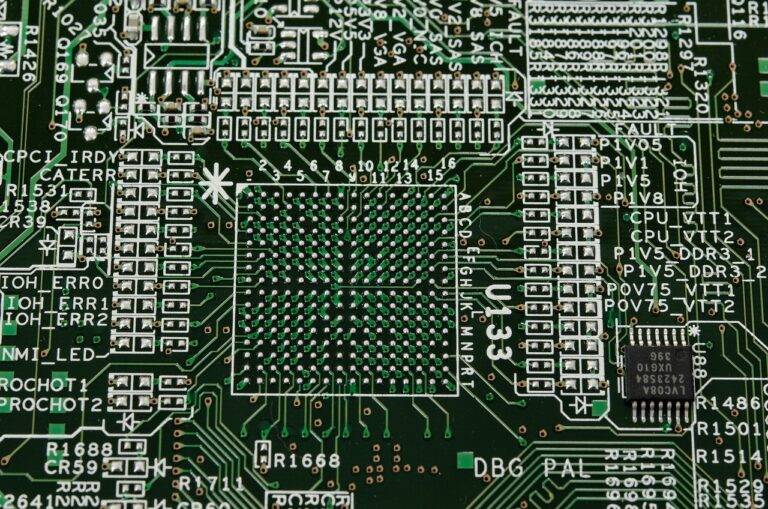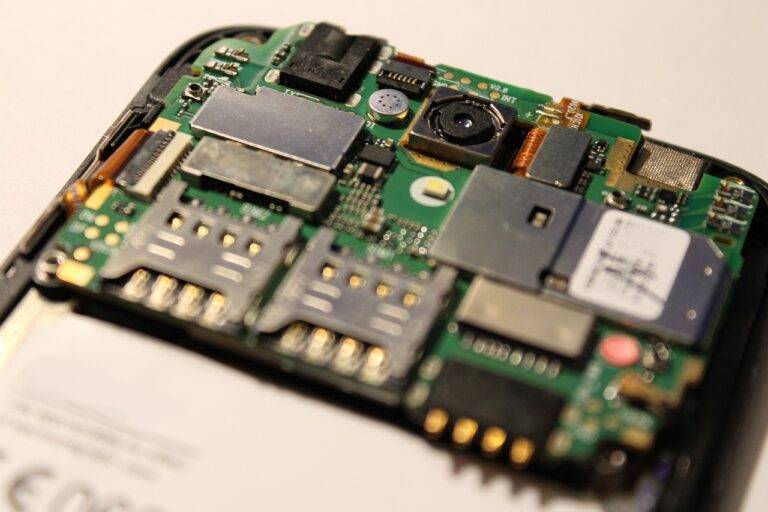AI in Healthcare: Transforming Patient Care
Artificial intelligence (AI) is revolutionizing the field of healthcare by enabling innovative ways to diagnose diseases more accurately and efficiently. By leveraging machine learning algorithms and vast amounts of medical data, AI systems can analyze symptoms, images, and patient history to assist healthcare providers in making timely and precise diagnoses. This technology is particularly valuable in detecting diseases at an early stage when treatment can be most effective, ultimately leading to better patient outcomes.
Moreover, AI algorithms can help streamline the diagnostic process by quickly identifying patterns and abnormalities that may be missed by human eyes. By incorporating AI into the diagnostic workflow, healthcare professionals can expedite the decision-making process and optimize resource allocation. This not only enhances the speed and accuracy of diagnoses but also empowers healthcare providers to deliver personalized and targeted treatments based on individual patient needs.
– AI enables innovative ways to diagnose diseases accurately and efficiently
– Machine learning algorithms analyze symptoms, images, and patient history
– Valuable in detecting diseases early for effective treatment
– Streamlines diagnostic process by identifying patterns and abnormalities quickly
– Expedites decision-making process and optimizes resource allocation
– Enhances speed and accuracy of diagnoses
– Empowers healthcare providers to deliver personalized treatments based on individual patient needs
Enhancing Medical Imaging with AI Technology
Artificial Intelligence (AI) technology has made significant strides in the realm of medical imaging, offering innovative solutions to enhance the accuracy and efficiency of diagnostic procedures. By leveraging advanced algorithms and machine learning capabilities, AI can analyze complex imaging data with unparalleled speed and precision, significantly reducing the margin of error in medical diagnosis. This transformative technology allows healthcare professionals to identify anomalies, lesions, and diseases in medical images such as X-rays, MRIs, and CT scans with greater accuracy, leading to more timely and precise treatment interventions for patients.
Moreover, the integration of AI technology in medical imaging has the potential to streamline workflow processes within healthcare facilities, optimizing resource allocation and improving overall patient care. With AI-enabled image analysis tools, radiologists and medical practitioners can expedite the interpretation of medical images, enabling quicker decision-making and facilitating prompt communication of critical findings to patients and relevant healthcare providers. This seamless integration of AI technology in medical imaging not only enhances diagnostic capabilities but also contributes to enhancing the overall efficiency and quality of healthcare services.
Improving Patient Outcomes through AI-driven Treatment Plans
AI-driven treatment plans are revolutionizing the healthcare sector by offering personalized and efficient care to patients. Through the analysis of vast amounts of patient data, artificial intelligence can identify patterns and trends that help healthcare providers tailor treatment plans specific to each individual’s needs. By considering factors such as genetics, lifestyle, and medical history, AI algorithms can recommend the most effective interventions to achieve optimal outcomes.
Additionally, AI technology enables real-time monitoring of patient progress, allowing for adjustments to treatment plans as needed. This proactive approach can help prevent complications and improve patient outcomes by ensuring that individuals are receiving the most appropriate care at all times. By harnessing the power of AI-driven treatment plans, healthcare professionals can deliver more precise and personalized care that leads to better results for patients.
How can AI applications help in diagnosing diseases?
AI applications can assist healthcare providers in diagnosing diseases by analyzing large amounts of patient data to identify patterns and make accurate predictions.
How does AI technology enhance medical imaging?
AI technology can improve medical imaging by enhancing the quality of images, detecting abnormalities that may be missed by the human eye, and providing more accurate diagnoses.
How can AI-driven treatment plans improve patient outcomes?
AI-driven treatment plans can improve patient outcomes by personalizing treatment options based on individual patient data, predicting treatment responses, and reducing the risk of complications.





